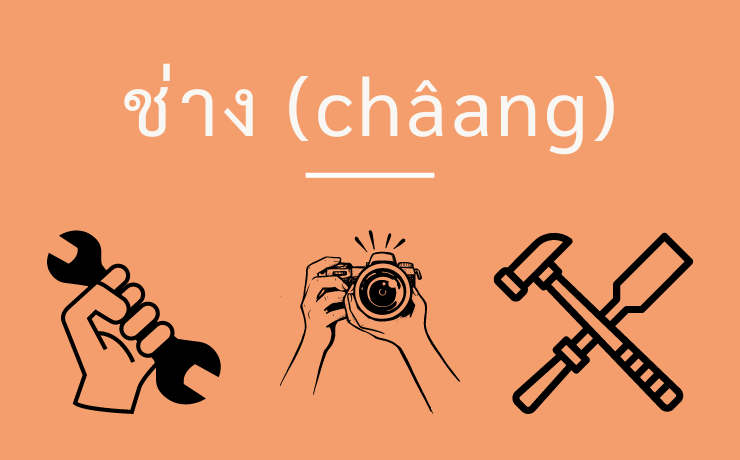The word ช่าง châang has a few different meanings in Thai.
For example, it can mean a mechanic or technician, it can mean “truly”. It can also mean to “forget it” as in “its not important” by saying ช่างมัน (châang man).
However, in this article, I want to talk about using ช่าง as a prefix for a few different professions. That way, if you hear ช่าง before other words you might already know, you’ll be able to guess the meaning.
The formula is ช่าง (châang) + verb or noun.

Let’s take a look at some examples.
- Photographer
ช่างภาพ : ช่าง (châang) = prefix, ภาพ (pâap) = a picture
châang pâap - Carpenter
ช่างไม้ : ช่าง (châang) = prefix, ไม้ (mái) = wood
châang mái - Repairman
ช่างซ่อม : ช่าง (châang) = prefix, ซ่อม (sôm) = to repair
châang sôm - Goldsmith
ช่างทอง : ช่าง (châang) = prefix, ทอง (tong) = gold
châang tong - Craftsman
ช่างฝีมือ : ช่าง (châang) = prefix, ฝีมือ (fĕe meu) = skill
châang fĕe meu - Carver
ช่างแกะสลัก : ช่าง (châang) = prefix, แกะสลัก (gàe sà-làk) = to carve
châang gàe sà-làk
I hope you now understand why so many words in Thai have ช่าง (châang) in them!
By the way, many words in Thai use the prefix นัก (nák) to talk about professions. You can find a list of words in Thai that have นัก (nák) in them in my article.
And similarly, many words in Thai have the word have ผู้ (pôo) in them to talk about people. You can read more about it in my article.

